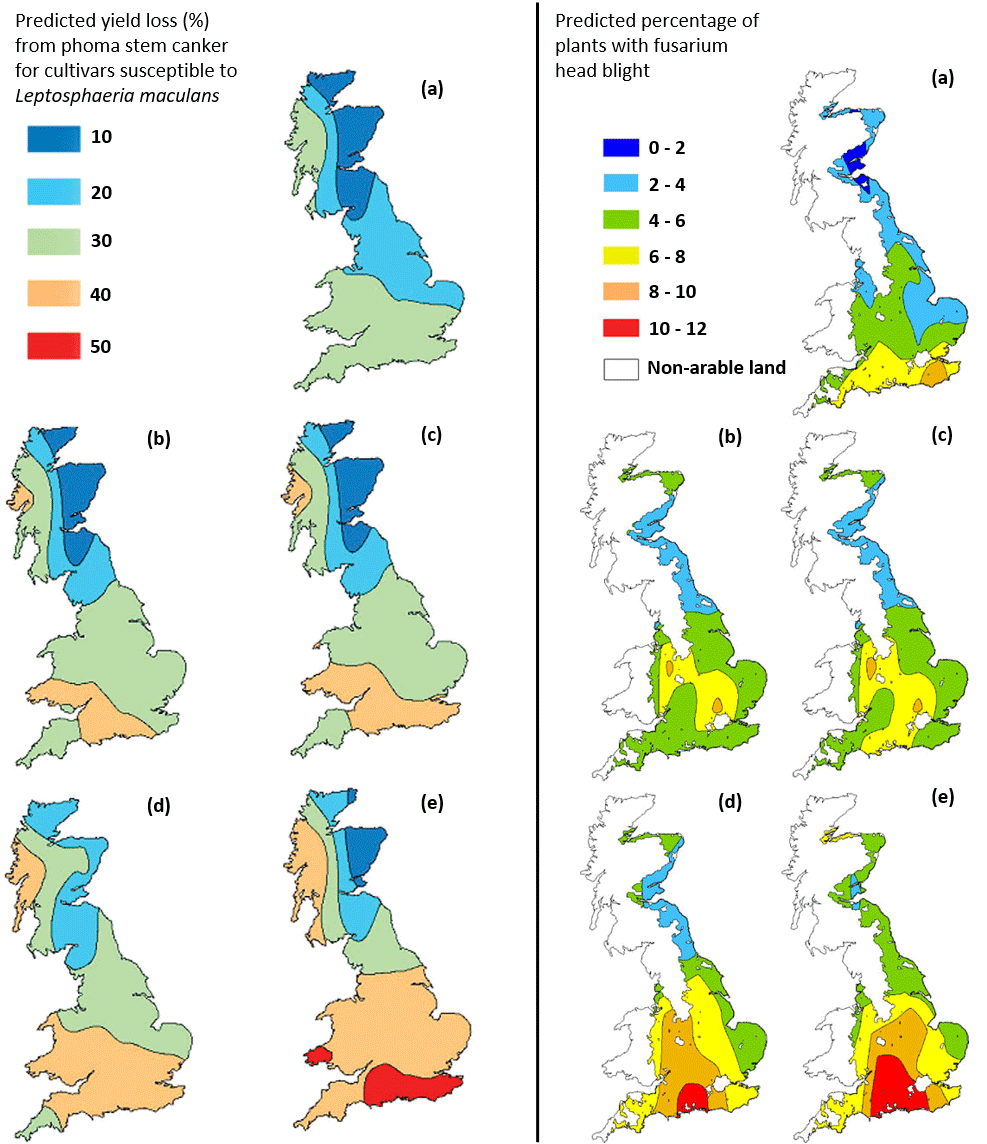Climate change and crop diseases
Fungal pathogens can induce up to 30% in crop yield loss and important economic losses, resulting in a decrease in food security. Climate change will have an important impact on agriculture due to a change in temperature and rainfall patterns and an increase in atmospheric CO2 concentrations.
These changes will have multiple impacts on plant pathogens, directly influencing the pathogen fitness or indirectly via a modification in the crop host distribution and phenology. They can lead to an increase of winter survival in temperate locations and earlier spore release dates or the emerging of new diseases.
Our objective is to develop or adapt forecasting models based on historical data sets to investigate the impacts of climate change on occurrence and distribution of fungal diseases by combining crop growth and crop disease models.
Our previous collaborative projects included works on phoma stem canker of oilseed rape (Evans et al. 2008, 2010; Butterworth et al. 2010; Zhang et al. 2014) and fusarium head blight of wheat (Madgwick et al. 2011; Zhang et al. 2014).
Our results suggest that epidemics of certain diseases will increase in severity and spread geographically with climate change (Fig.1).
Fig. 1 - Predicted yield loss (% of maximum yield from fungicide-treated plots, left, Butterworth et al. 2010) from phoma stem canker for susceptible oilseed rape cultivars (HGCA resistance rating 1–5) and projected average fusarium ear blight incidence (% plants affected, right, Madgwick et al. 2011) in Great-Britain for five weather scenarios: (a) baseline, (b) 2020LO, (c) 2020HI, (d) 2050LO and (e) 2050HI. The baseline scenario is based on the patterns in observed weather from 1960–1990, and the other scenarios are high CO2 (HI) and low CO2 (LO) emissions scenarios for the 2020s and 2050s. The maps were produced by spatial interpolation between the 15 and 14 sites, respectively.
